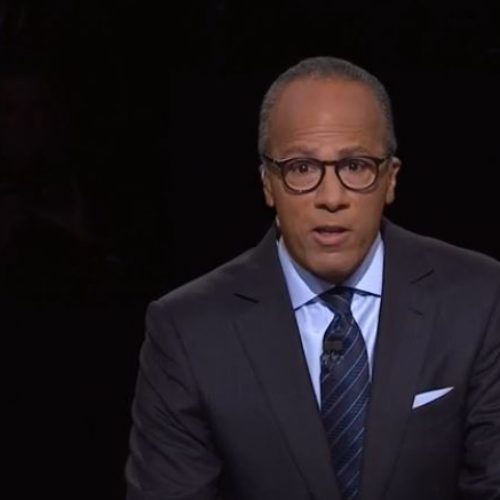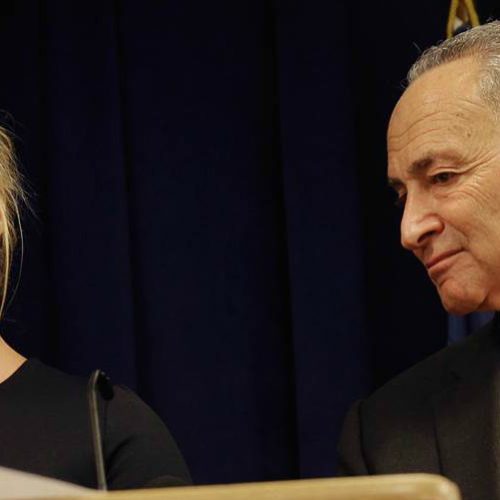Unfriend: How Liberals are Cutting Conservative Friends Out of Their Digital and Real Lives
It finally happened.
I can’t say I didn’t see it coming. I knew that liberals seemingly couldn’t help but be triggered by anything or anyone associated with the Trump name, but I still thought it was harmless to post a picture of my family and me eating dinner at the Trump International Hotel on my birthday.
Apparently, not everyone thought it was harmless.
The very same day I made the post, I noticed that my Facebook friend count had decreased by one. I didn’t take this personally, but my curiosity did take over, and I looked through my friends list to see who might have removed me. I discovered that it was an acquaintance I had not spoken to in years. No big loss.
The next day, I noticed that my friend count had decreased by one again. I had a suspicion that it was a (formerly) good friend who had communicated to me around election time how upset she was with me for voting for President Trump. She informed me that she could not understand why someone as loving as I am could vote for someone who preaches hate. She also vocalized how she took my vote super personally because she had been sexually assaulted and believed that President Trump bragged about sexually assaulting women. In other words, how dare I not see things through her very narrow point of view, and how dare I do this to her? From her perspective, my vote was seemingly a direct attack on her; never mind the possibility that I could have voted based on facts and not emotion. We had not spoken since that conversation, but I could tell in her subsequent Facebook posts that she still carried a super negative attitude about the election and its consequences. It was my post about having dinner at President Trump’s hotel that seemed to really send her over the edge, though, because she did unfriend me.
My story hardly seems to be an anomaly.
Dennis Prager wrote an article about liberals who have cut ties with Trump supporters. This exclusion of friends and family often goes beyond just disconnecting with them on social media, but can involve severing any and all communication whatsoever. Prager lists several reasons why this “phenomenon” occurs, and gives one key insight in particular that resonates with many conservatives I have spoken to:
“People on the right think that most people on the left are wrong; people on the left think that most people on the right are evil.”
Ever since November 8th, the Left has done seemingly everything possible to resist Trump’s presidency. On March 8th, International Women’s Day, liberal women across the country participated in a Day Without a Woman protest (led by a convicted terrorist and a sharia law proponent) which involved skipping work so their absences could supposedly prove their value in the workplace and marching down city streets so they could verbally express their outrage about what they believed to be misogynistic remarks from President Trump during election season.
Shortly before the Day without a Woman protest, a colleague asked me if I was going to participate, to which I replied that I would not. She then surmised that I was not participating because I was new in the position and did not want to negatively affect my standing with my boss. That was not the reason I declined to participate. The real reason was that I did not agree with the politics behind the protest and that I believed I could show my importance in the workplace by actually doing a good job at my job. I did not say this, though, because as a new person in a workplace of mostly liberals, I did not want to start off on the wrong foot with my colleagues. That conversation, though, gave me great insight into how the Left thinks: not only are President Trump and his followers evil, but liberals just assume that any seemingly normal person they meet thinks exactly like them unless told otherwise. After all, my colleagues think I am a nice, normal person. Why wouldn’t I participate in the whining with all the other women?
I have never been someone who bombards friends and family with my political beliefs in person or on social media. While I like to stay informed about current events, I know that politics can be a negative topic, and when conversing with friends, I like to stay positive. Why focus on what divides us rather than what unites us? I know that others do not take this approach, though, and they have every right to free expression. I may not agree with their opinions, but I certainly will not cut them out of my life simply because I disagree with them.
What, then, is the solution to the liberals who put on political blinders? They have been very vocal about their unwillingness engage in any sort of civil discourse in regards to President Trump. They have their opinions, and you bet they will tell you what they think. What if you want to want to offer a counter-argument to their claims? They will call you a racist, xenophobe, homophobe or misogynist. You are an evil person full of hate if you support President Trump, and that’s the end of the discussion.
Should we then, as conservatives, keep our voices quiet in fear of chastisement from the Left? Do we abide by the Left’s language policing and refrain from discussing certain topics on the chance that such topics might offend certain groups of people in certain corners of the world? How do we navigate this current political climate? I believe the answer is not to be silent, but to do our best to attempt to engage in civil discussions with the other side. We can be steadfast in our beliefs and communicate our values as calmly and as clearly as possible. If they choose not to hear our voices and to keep their tunnel vision, that’s not something we can control. We can control how we show up on our side of the street, and if we stay dignified, we will continue to win as we did in November.




